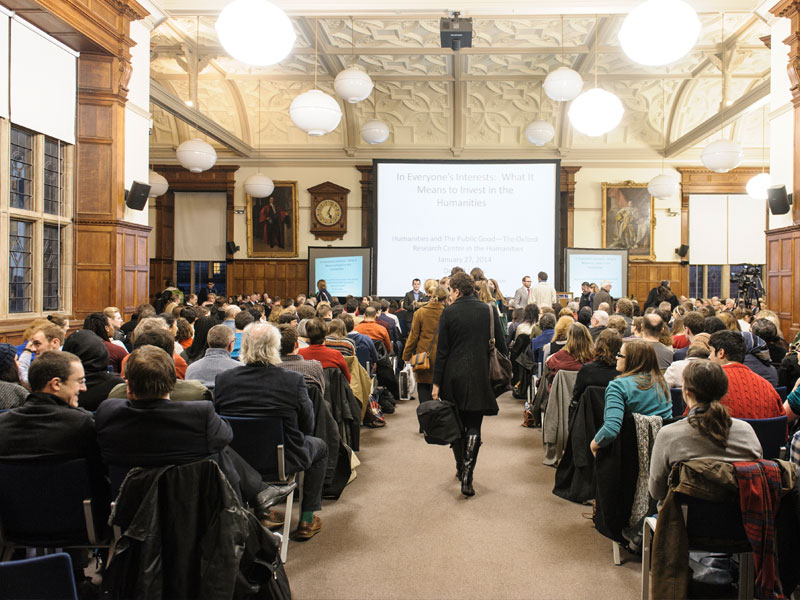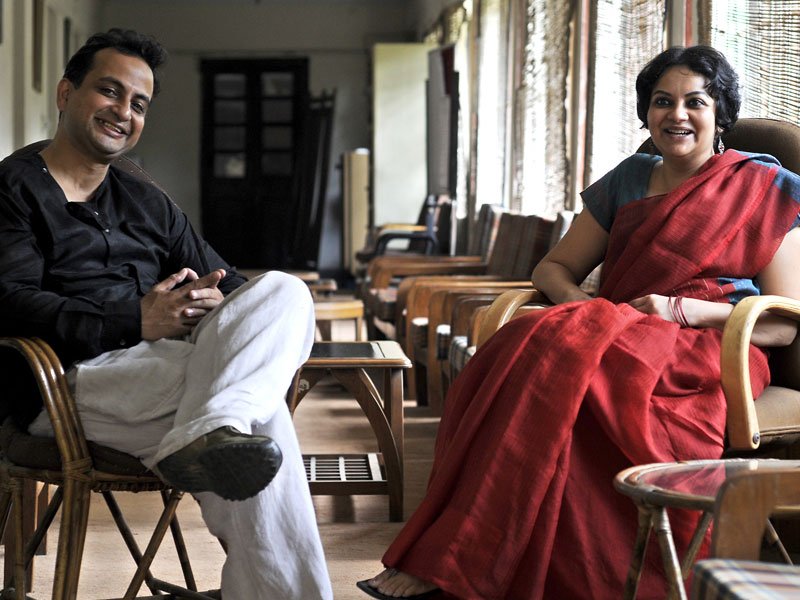Celebrating the value of the humanities
In a society where we face new and more complex problems every day, the study of the humanities is crucial to making sense of the world – past, present and future. At a time when funding for research and higher education is under pressure, it is invaluable to address and explore what it means to invest in the humanities.
With the support from donors large and small – from the Andrew W Mellon Foundation and the British Council to many individual donors through the University’s Annual Appeal – The Oxford Research Centre in the Humanities (TORCH) set out to tackle this question with their ‘Humanities and the Public Good’ series earlier this year.
This event was a refreshing celebration of the humanities in a global conversation that has become largely defensive.
The public events brought together almost 1,000 people, including figures beyond academia, to consider the role of the humanities in addressing the challenges of our time. Public lectures, workshops and conferences invited attendees to move beyond the standard defences of the humanities, and explore instead what the humanities do, and should, contribute to practical issues of the public good.
Educating citizens for an interconnected world
The events inspired many of the attendees. ‘This event was a refreshing celebration of the humanities in a global conversation that has become largely defensive,’ said one. ‘It was very thought-provoking, and made me think about the relevance of studying the Humanities,’ said another attendee.
 Photo Credit 'Humanities and the Public Good' inaugural event by Stuart Bebb
Photo Credit 'Humanities and the Public Good' inaugural event by Stuart Bebb
The inaugural round-table discussion, In Everyone’s Interests: What It Means to Invest in the Humanities, provided the space for a panel of leading figures from the humanities, science, the media and politics to discuss, with the audience, what proportion of public funding should be directed towards the humanities. Responding to the question ‘Why should we invest in the Humanities?’ Professor Hermione Lee, President of Wolfson College and one of the panellists, put it simply: ‘Because we are human.’
The lead speaker at the session, Dr Earl Lewis, President of the Andrew W Mellon Foundation, which has given extensive support to Humanities initiatives and research in Oxford and around the world, said: ‘The answer lies in understanding and articulating the roles the humanities play in educating citizens for a complex and interconnected world.’
Changing the world with the humanities
The series culminated with a conference on ‘Activist Humanities in the World’, which was organised in collaboration with universities from across the globe. The conference explored the relationship between humanities and social change in a wide variety of cultural and economic contexts, involving dozens of scholars, activists and practitioners from every continent.
‘The conference exceeded all promise, allowing for a wide representation of the histories, politics and practices of humanities in many parts of the globe, as well as exchange of knowledge,’ said Dr Brinda Bose and Professor Prasanta Chakravarty, from the University of Delhi.
 Photo Credit Brinda Bose and Prasanta Chakravarty by The Hindu / S. Subramanium
Photo Credit Brinda Bose and Prasanta Chakravarty by The Hindu / S. Subramanium
The connections between the humanities and science
Leading scientists were involved throughout the series. Professor Marcus du Sautoy, Charles Simonyi Professor for the Public Understanding of Science at Oxford, explained that his desire to study mathematics came from reading G H Hardy’s A Mathematician’s Apology as he ‘enjoyed the stories being told inside this book’. Professor du Sautoy added that collaboration between the humanities and sciences is crucial for the advancement of both: ‘It’s by working with people from other disciplines that we can ask new questions.’
TORCH will explore the relationship between the humanities and sciences further in its annual headline series for this year, ‘Humanities and Science’. Again, the series will go beyond traditional debates about the relationship between the two cultures, to see what new questions can be asked, and what new answers can be provided, by bringing specific disciplinary approaches together. The series will also showcase some of the existing research projects that cross the disciplines, as well as provide an incubation space for new collaborative projects.
The programme will include a diverse range of talks, discussions, debates and performances and, following a generous donation from the Andrew W Mellon Foundation, there will also be opportunities for faculty members in the humanities and sciences to undertake joint research projects.
We are very grateful to the Andrew W Mellon Foundation for giving us the opportunity to support research that reaches between the humanities and sciences – the most difficult, but perhaps the most needed form of collaboration.
Stephen Tuck, TORCH Director
Find out more about these upcoming events on the TORCH website.
Support TORCH